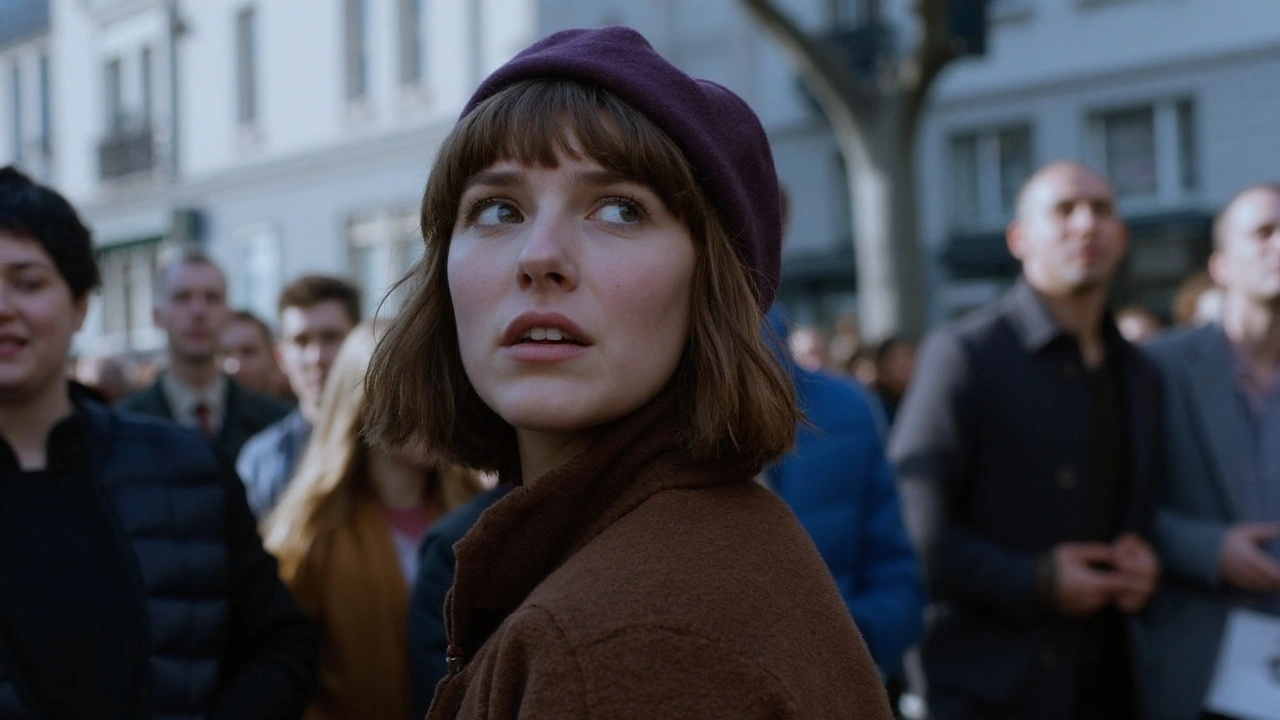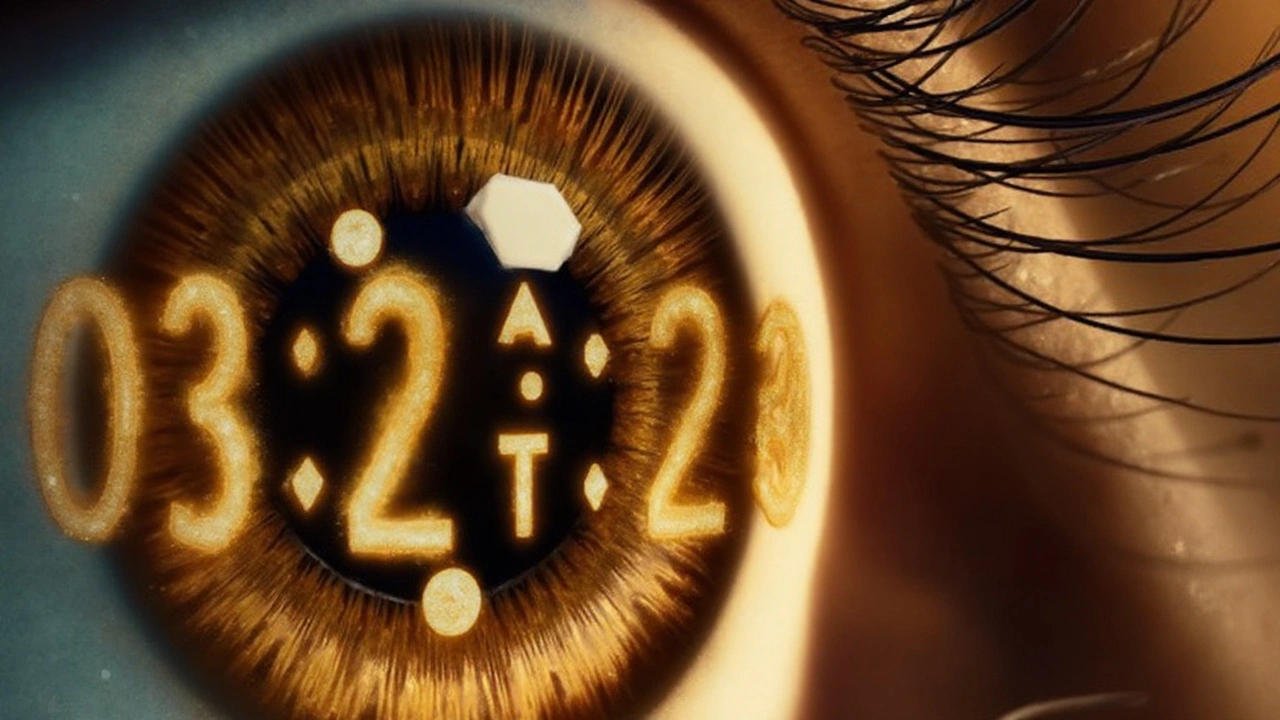Alfie Allen joins 3 Body Problem season 2, reuniting with the Game of Thrones showrunners
Alfie Allen, best known as Theon Greyjoy from Game of Thrones, is stepping into Netflix’s sprawling sci‑fi epic with a recurring role in 3 Body Problem season 2. It’s a reunion years in the making with David Benioff and D.B. Weiss, who steered HBO’s megahit and now help lead the adaptation of Liu Cixin’s mind‑bending trilogy. Production is underway in Budapest, and Allen’s character is reportedly codenamed “Fuzzy Brain,” a detail that has already sent the fandom digging for clues.
Allen’s casting isn’t just a fun crossover. On Thrones, he built one of the show’s most layered performances, turning Theon’s decade‑long arc into a lesson in guilt, survival, and redemption. He earned an Emmy nomination in 2019 for it, and that reputation for nuance fits the new series, which thrives on characters forced into impossible choices as Earth stares down a far‑off alien threat.
This second season arrives with momentum. Netflix renewed the show in 2024 with a plan to carry the story beyond its debut run, and the creative team has been clear: the long game matters. The San Ti—humanity’s first contact, known to readers as the Trisolarans—are still centuries from Earth in the timeline, but their influence is already changing politics, science, and faith. That slow‑burn pressure cooker is where Allen’s intensity tends to shine.
He’s not the only new face. David Yip (The Chinese Detective) joins the ensemble, as does Jordan Sunshine (Wonder Pets). Claudia Doumit from The Boys jumps into the main cast as Captain Van Rijn, and Ellie de Lange steps in as Ayla. It’s a mix of veteran presence and fresh energy, which tracks with the show’s habit of pairing head‑spinning science with character‑driven storytelling.
Budapest gives the production scale and flexibility. The city’s stages, crews, and locations can stand in for multiple countries, which helps when a series needs particle accelerators one day and secretive think tanks the next. With VFX‑heavy sequences and a global plotline, filming there also stretches the budget while keeping the look polished.
Allen’s recent screen run points to range. He sparred with Keanu Reeves in John Wick, played a uniformed officer in the Oscar‑winning Jojo Rabbit, and kept bouncing between intensity and dry wit. In a story that swings from lab benches to deep‑space dread, that toolbox matters.
The headline‑grabbing codename—“Fuzzy Brain”—is the kind of detail that prompts wild guessing. Is it a placeholder to hide a book character? A nickname born inside the show’s universe? Or a clue about cognitive science, simulations, or signal interference—areas the series loves to poke at? The first season used misdirection around names and timelines, so a temporary alias wouldn’t be a shock.
This reunion with Benioff and Weiss also signals trust. Showrunners tend to call actors they know can handle heavy lifts under tight schedules. Allen has done that on giant sets before. Here, he steps into a production co‑created by Benioff, Weiss, and Alexander Woo, whose combined approach mixes blockbuster pacing with an appetite for thorny ideas.
The newcomers join a core cast already wrestling with the consequences of season one. The show framed scientific breakthroughs as moral crossroads, not just plot devices. It’s one thing to model an alien civilization’s chaos on a whiteboard. It’s another to live with the fallout when their gaze turns back on you.
Season two is expected to push further into the trilogy’s big swings: deterrence, surveillance at the smallest scales, and the way a distant enemy can still warp human behavior right now. Without spoiling the books, readers know the next chapters crank up both the philosophical stakes and the visual ambitions. That usually means more practical builds, bolder effects, and a sharper focus on who gets to make planet‑sized decisions.
Claudia Doumit’s addition hints at that shift. On The Boys, she toggled between controlled charm and sudden menace. A captain in this world likely won’t just bark orders; she’ll have to navigate competing loyalties, public fear, and data that refuses to give clean answers. Paired with Allen’s edge, those scenes could carry real voltage.
David Yip brings steadiness. He’s done procedural grit and character work that lands without theatrics. In a series that asks audiences to follow abstract physics and tight‑lipped conspiracies, a grounded presence can make the difference between engaging and alienating. Jordan Sunshine and Ellie de Lange add the kind of faces that can grow with the story across seasons, a practical bet when the narrative keeps widening.
The choice to film in Budapest also speaks to schedule. Large stages allow parallel builds: one team can dress a research facility while another constructs a ship interior or a meeting hall. That overlap keeps cameras rolling and gives post‑production a longer runway, vital when shots combine real sets with intricate simulations.
Netflix has reason to keep the pressure on. The first season landed near the top of weekly charts in many countries at launch and sparked long threads about what the story got right—and what it left for later. Word‑of‑mouth matters more here than hype. People tell friends to watch because the ideas linger after the credits, not just because the show looks expensive.
As for Allen’s role, the best argument for it is practical: season two needs actors who can sell dread without speechifying and hope without sentimentality. Allen’s work on Thrones often lived in those margins. His characters feel the weight of their choices before they speak, which is exactly where this series likes to live.
There’s also the reunion factor. Crews work faster when shorthand exists. Directors know how Allen plays silence. Allen knows where the camera wants to sit when the scene turns. In a production juggling timelines, ensemble scenes, and exposition that can’t sound like a textbook, that efficiency is gold.
No release date is locked in yet, and Netflix is keeping plot details tight. That’s smart. Part of the hook is discovery—feeling the ground shift as the science, politics, and personal stakes braid together. Dropping too much early would flatten the ride.
Expect the marketing to lean on two pillars when the time comes: familiar faces meeting unfamiliar problems, and set pieces that feel both massive and eerie. The show doesn’t do chaos for chaos’s sake. It lines up dominoes and lets you watch the math hit the human nerve.
If you’re trying to decode “Fuzzy Brain,” here’s a safe way to think about it without diving into spoilers. The story loves systems that look messy at first and then click into place, whether that’s a virtual construct, an experimental probe, or a plan meant to keep an unseen adversary guessing. A label that sounds odd might be the point: it hides intent until it’s too late to counter.
What’s clear is the ambition. Few series aim this high on both the science and the character front, and fewer still manage to keep it watchable week to week. Bringing in Allen raises the floor on performance while the world gets bigger around him.
As filming continues in Hungary, more casting news should surface. Roles that tie the global threads together usually drop closer to the first trailer. For now, the combination of returning creatives, a deepening cast bench, and a production footprint built for scale suggests a second season that swings harder and thinks bigger.

What to watch for as production rolls on
- A clearer sense of Allen’s role once character descriptions land. If the codename sticks, it could hint at a function rather than a name, like a project, protocol, or specialist skill set.
- How Claudia Doumit’s Captain Van Rijn fits into the chain of command. Titles in this world often carry moral weight, not just rank.
- The balance between new locations and returning sets. Season one built striking spaces; season two will likely test them under stress.
- Any signals about timelines. The closer the San Ti loom in the plot, the more the show will test ideas about deterrence and cooperation—areas where performances do the heavy lifting.
For fans of both Game of Thrones and 3 Body Problem, this crossover isn’t just nostalgia. It’s a practical bet on an actor who can carry complicated material without blinking. That’s the currency this series trades in, and season two looks ready to spend it.




Here we go again, another “must‑watch” hype train, and you’re supposed to believe a Game of Thrones alumnus magically upgrades the whole series 🧐😂. The producers probably think “Theon” equals depth, but we all know it’s just name‑dropping to bait the fanbase. If they wanted genuine sci‑fi gravitas, they should have invested in actual scientists, not a former pretender‑king. Still, I guess any extra screen time for a known face will boost the algorithm, so bravo Netflix for the marketing trick. 🙄
From an epistemological standpoint, the integration of a former Westerosi actor into a narrative that juxtaposes quantum mechanics with geopolitical stratagems constitutes a calculated diffusion of cultural capital. It is imperative to acknowledge that the selection of Alfie Allen, an emblem of Western imperial media, underscores a neo‑colonial proclivity that subtly marginalizes indigenous scientific narratives. Moreover, the production’s reliance on Budapest as a surrogate for transnational locales reveals a logistical compromise that belies the series’ purported universalist ambitions. In sum, the casting decision operates as a performative gesture aimed at consolidating hegemonic hegemony under the veneer of inclusive storytelling.
It is noteworthy that the inclusion of Alfie Allen may attract a broader audience, yet the core of the series remains its intricate portrayal of scientific dilemmas. The producers appear to be balancing commercial considerations with narrative fidelity. One hopes the character will be woven seamlessly into the existing thematic fabric.
Look, you can deconstruct the casting to a hundred theories, but at the end of the day, the show just needs someone who can hold a camera without breaking a sweat. Allen’s background in high‑budget productions means he’s already accustomed to the kind of set pressure where you have to hit your mark while a VFX crew is rendering a particle accelerator in the background. So yeah, the “cultural capital” angle is interesting, but the practical upside is that he can deliver the subtle intensity the script calls for without the director having to explain basic acting beats.
The codename “Fuzzy Brain” likely denotes a technical project rather than a conventional character designation.
Ah, the “Fuzzy Brain” mystery-what a tantalizing glimpse into the labyrinthine schemata of the series! One can almost feel the tension coiling like a serpent awaiting its strike, as if the very air in Budapest is charged with the electric anticipation of hidden agendas. This is not merely a placeholder; it is a harbinger of the cerebral warfare that will define the season, a battle where intellect supersedes brute force. And let us not forget, in these moments, the narrative thrives on the dramatics of revelation, pulling the audience into a vortex of speculation that only a seasoned actor such as Allen can navigate with the gravitas of a seasoned war‑hero turned scholar.
Hey everyone, just wanted to chime in with a broader perspective. The casting of Alfie Allen is a strategic move that serves both the storytelling and the community of fans who appreciate nuanced performances. While some may dismiss it as a stunt, it’s also an opportunity for the series to explore themes of redemption and identity through a familiar yet evolving lens. In the same breath, let’s acknowledge the contributions of the newer cast members-they’re laying down the groundwork for the next chapter of this complex saga. So, whether you’re here for the sci‑fi concepts or the character arcs, there’s room for everyone to find a point of entry.
Honestly, you’re painting the whole thing with a too‑rosy brush. The series has a habit of overpromising on scientific rigor while underdelivering on character depth. It’s not enough to merely “lay down groundwork”; the narrative must substantiate that groundwork with concrete, intellectually satisfying moments, not just placeholder scenes that look impressive on a budget.
The arrival of a familiar Western actor in a Chinese‑centric adaptation of Liu Cixin’s magnum opus is more than a casting footnote; it is a microcosm of the post‑colonial dialectic that permeates contemporary media ecosystems. As the narrative stretches across epochs and interstellar distances, the very act of embedding a Westeros‑originated persona into a storyline predicated on the existential dread of alien contact forces us to confront the layered hierarchies of cultural signifiers. One could argue that the producers are attempting to graft a recognizable touchstone onto a complex scientific tapestry, thereby reducing the cognitive load for a global audience accustomed to Western tropes. This graft, however, is not without consequence; it subtly recalibrates the axis of narrative authority, nudging the viewer’s empathy towards a character whose lineage is rooted in dynastic betrayal rather than scientific inquiry. Moreover, the codename “Fuzzy Brain” operates as a linguistic cipher, an emblem of the series’ predilection for obfuscation that mirrors the epistemic uncertainty faced by humanity within the text. The very notion of a “fuzzy” intellect juxtaposes with the crystalline precision demanded by quantum physics, suggesting an underlying commentary on the malleability of perception under existential threat. In this light, the casting becomes an allegory for the fuzzy boundaries between knowledge and ignorance, a theme that resonates deeply with the series’ exploration of deterministic versus probabilistic worldviews. The production’s choice to film in Budapest further amplifies this transnational hybridity, weaving Eastern narrative motifs with Western production aesthetics, a synthesis that may either enrich the visual lexicon or dilute the cultural authenticity. Such a decision invites scrutiny: does the geographic relocation serve merely logistical convenience, or does it symbolize the fluidity of modern storytelling spaces where borders are porous and narratives are modular? While some purists may decry this as a commodification of artistic integrity, it is incumbent upon the audience to interrogate the implications of such hybridity on the collective imagination. Consequently, the series stands at a crossroads, poised to either transcend its fragmented origins and coalesce into a unified vision, or to fragment further under the weight of its dissonant components. As viewers, we must remain vigilant, lest we allow the spectacle to eclipse the substantive philosophical inquiries that the original novels so deftly posed. The impending season, with its amplified scale and deeper character interplays, will test whether the integration of star power can genuinely augment the narrative’s intellectual rigor or merely serve as a veneer for commercial appeal. Ultimately, the success of this endeavor will be measured not by viewership metrics but by its capacity to provoke sustained, critical discourse on humanity’s place in an indifferent cosmos.
That analysis captures many of the underlying tensions at play. While the production choices are complex, they do provide an opportunity to bridge diverse audiences and stimulate discussion about the broader themes of the series.